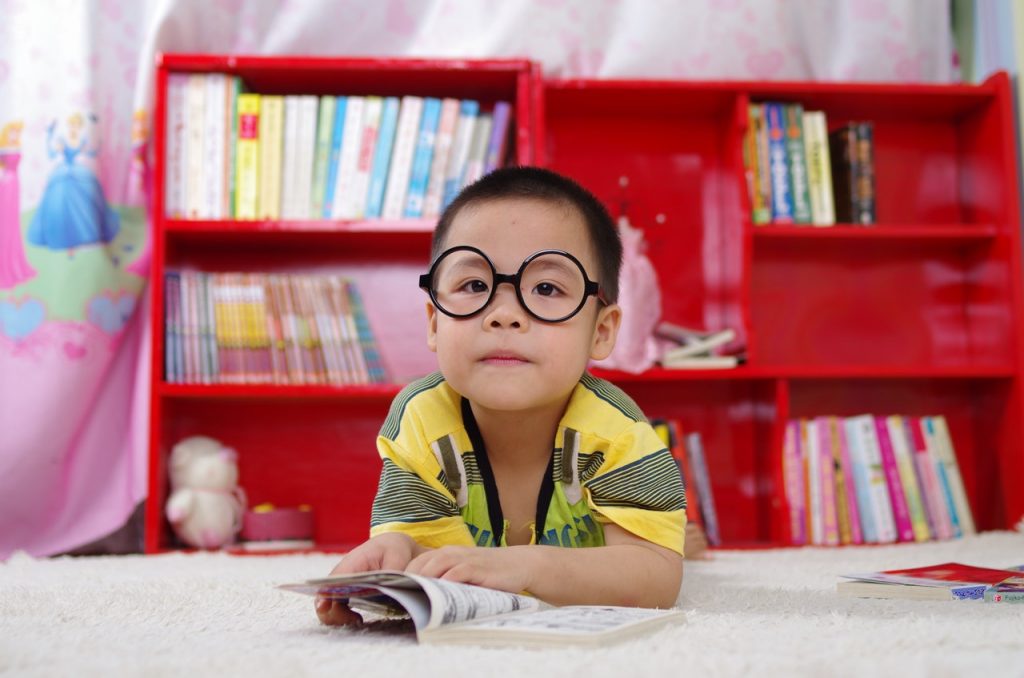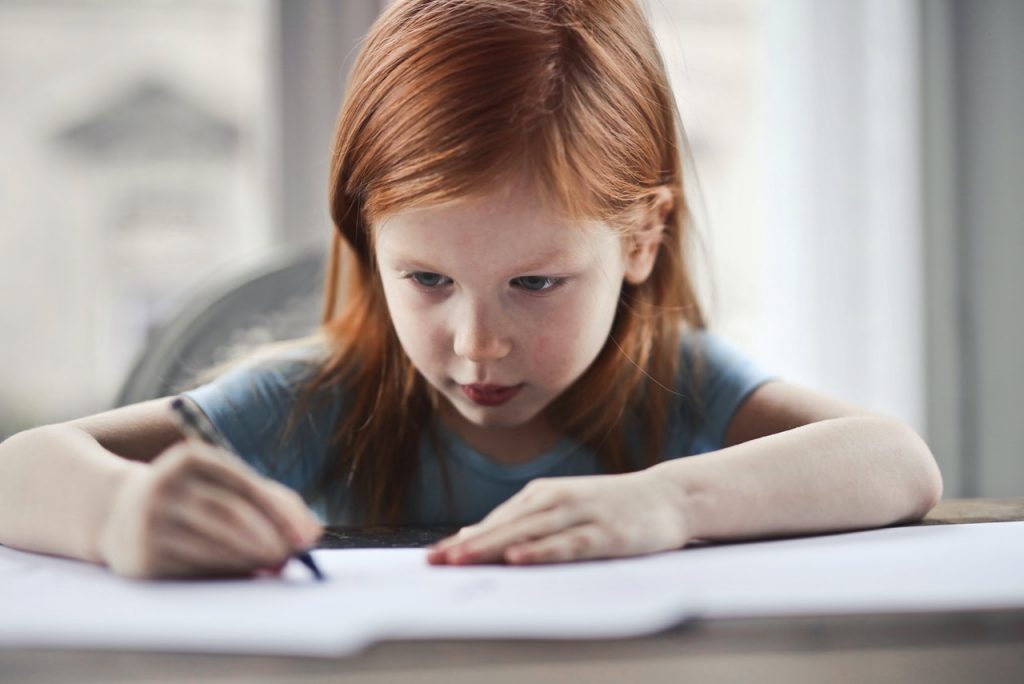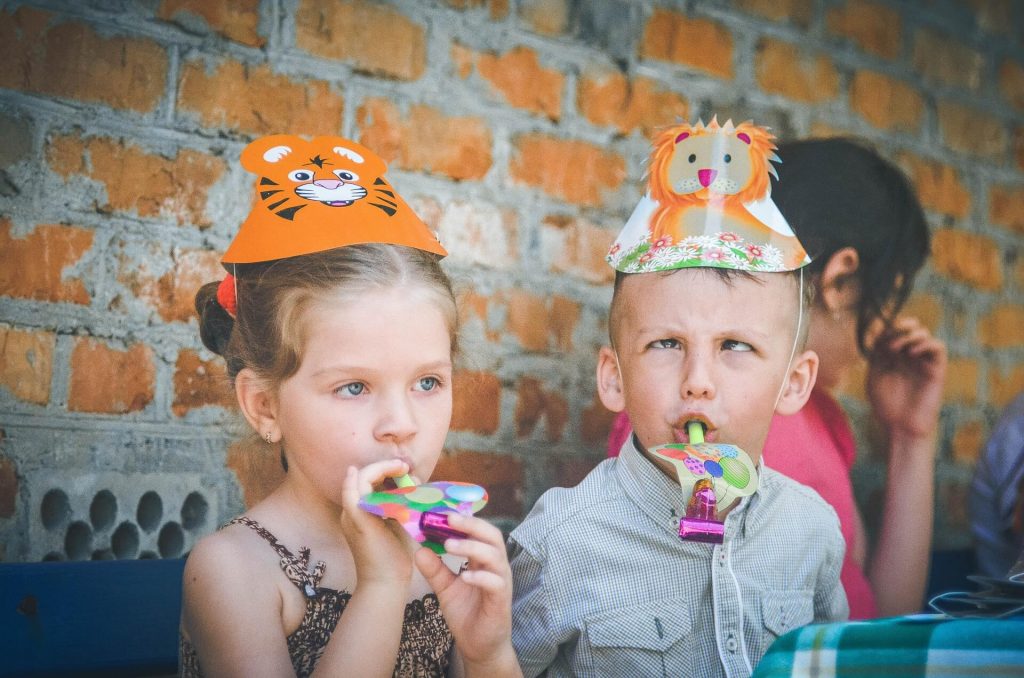What parents should know about the psychological readiness of the child towards studying

Without exception, all parents are interested in the success of their child’s education. Therefore, they start preparing them for school in advance: they enroll future first-graders in preparatory courses and teach them to read, write, and count.
These skills will certainly come in handy for the child during the process of studying, however, moms and dads forget about the psychological readiness of children for school. It is this factor that defines sufficient maturity of the child’s psyche for the transition to a new stage of development – to educational activities.
In this article, you will learn more about what psychological readiness for schooling is, and why it is so important.
To worry less for the young student and to find out how is the long and often complicated process of adaptation going, use the “Findmykids” app for parental control. With it, you will be able to hear the sounds around your child, get in touch with them in the event of any situation, and track their location on the map.
Contents:
- What is psychological readiness for school?
- What’s the correct way of preparing the child for school?
What is psychological readiness for school?

Prostock-studio/Shutterstock.com
Many parents believe that if a child, by the age of seven, has learned to read, write and solve math problems, then they are completely ready to get integrated into the schooling system.
This opinion is wrong. This is because it is not enough for a preschooler to possess a certain level of knowledge, abilities, and skills to fully master the school curriculum.
By the age of seven, a child should have developed a psychological readiness to study at school. This is the required level of development that will allow them to be successful not only in the learning process but also in communicating with adults and peers, as well as in understanding the inner position of the student.
The child’s readiness for learning implies that all areas of mental development are ready to adopt the rules of school life.
Why should a preschooler be psychologically ready for school? This can be demonstrated with a real-life case study.
⠀
This case study illustrates the importance of correct psychological and pedagogical preparation for school and for future life. In it, the attention is directed towards all aspects of the child’s mental development. Due to the wrong actions of the mother, the child ended up in a special-needs school, in an education system that does not correspond to his actual capabilities.
To sum up, a child who is psychologically ready for school, adapts to the learning process and school life, muck quicker. It is easier for them to establish relationships with teachers and classmates, make friends and demonstrate their best traits of character.
To worry less for the young student and to find out how is the long and often complicated process of adaptation going, use the Findmykids app for parental control. With it, you will be able to hear the sounds around your child, get in touch with them in the event of any situation, and track their location on the map.
The components to readiness

Prostock-studio/Shutterstock.com
Let’s now see what the child needs to be successful at school:
Motivated readiness
The task that is performed with willingness and interest, is the only one that would be successful. Therefore, towards the end of the pre-school age, the child will need to have the following:
- the willingness to study and obtain new knowledge;
- the interest in the world around them;
- a positive attitude towards the school, the teacher, and classmates.
Psychologists argue that when entering school, social and achievement motivations start dominating children. They enjoy wearing nice uniforms, having school supplies, such as stationery, meeting new friends, getting good grades, and being praised by the teacher.
The motivation to learn appears much later, towards the second or the third grade. At first, the child will need to get acquainted with the role of the student and then to shift towards an understanding of what this role may bring them.
Intellectual readiness
The more the child knows and can do, the easier it would be for them to position themselves at the beginning of their learning process at school. The following items would act as important readiness indicators:
- the ability to establish causal relationships between events and situations;
- the ability to analyze, sum up and to come up with conclusions;
- a sufficient amount of stored knowledge about the world around them, in line with their age.
Social and personal readiness

Prostock-studio/Shutterstock.com
School education involves communicating with a large number of people: teachers, classmates, and kids from other grades. Hence, the child should have the following capabilities developed in them:
- the ability to interact with adults and peers, both the ones they know and with total strangers;
- the ability to respond to the requirements of adults;
- responsiveness, empathy;
- developed moral principles;
- adequate self-esteem.
Emotional readiness and self-motivation
The challenges of school life are not easy for ex-preschooler. They now have to get up early, be at school before classes begin and sit in class for long periods. It won’t be possible to relax at home either because they will not have to do their homework. Therefore, the child will now need to be focused, responsible and organized.
The following skills and abilities would be required from them:
- to concentrate on a task and to concentrate in general;
- to complete tasks;
- to control their actions and emotions and to keep the negative manifestations to themselves;
- to overcome difficulties when reaching a certain goal;
- the ability to act according to the rules.
Simon from our case study did not have their willingness and emotional maturity developed enough from a personal and social standpoint. He could not control their behavior, obey adults or interact with their peers. If the mother was directing enough attention to developing their curiosity to learn new skills, it is highly possible that the outcome would have been different.
Diagnostic methods

Prostock-studio/Shutterstock.com
In order to determine the level of a child’s readiness for school, psychologists use various methods, such as Kern’s test, “Graphical dictation”, “A talk about school”, and many others.
However, parents themselves can determine the degree of readiness of their child for schooling.
Firstly, you can ask your son or daughter a number of questions about the world around them, such as “What kinds of birds do you know?”, “Tell me about the signs of spring in nature?”, “Why does water turn into ice?”.
Secondly, there are quite simple methods with the use of which, mothers and fathers can understand the level of memory, attention and thinking development of their child.
“10 words”
One such technique is the “10 words” method. Its essence lies in the fact that the mother reads out 10 words that are not related to their meaning. The child’s task is to name all the words that they could remember after each set. The words are read out 4 times. Normally, the child should memorize 8-10 words after the fourth repetition. A low level of development of auditory memory is characterized by 3 or fewer memorized words.
“Replicate the pattern”

Another technique, which is quite simple for parents, is called “Replicate the pattern”. Mom or Dad draw a simple pattern in the notebook and ask the child to do the same. Here, several indicators could be evaluated at once: whether the child can draw lines exactly along as you drew them or not, do they get a uniform pattern, or are there differences, and whether they perform the task diligently or carelessly. If the pattern is drawn correctly and in even lines of a similar size, this indicates a high level of development of graphic skills and visual-spatial coordination. Otherwise, special attention should be directed towards these skills.
“The fourth odd one”
The level of logical thinking of a child can be determined using the method called “The fourth odd one”. Here is the principle: the child is shown 4 pictures, one of which is the odd one. For example, cat-dog-cow-fox. The parent asks the child to name the odd image and explain their choice. Out of 10 attempts, at least 7 should be successful. The result of 6 images or fewer, indicates the child’s underdevelopment of analysis and generalization skills. It may also indicate a low level of general culture.
It is useful for parents to observe the child: how they communicate with the people around them, do they have friends, do they know how to focus on one thing, do they have the desire to learn something new. An important indicator is how the child copes with difficulties: whether they give in to them, ask for help from their parents, or solve the problem on their own.
The signs of a lack of readiness of children for studying at school

Prostock-studio/Shutterstock.com
These manifestations may be noticed before the child enters the first grade and their time at school begins. The child is not ready to study at school if they display the following symptoms:
- not focused, “has got their head in the clouds”, is unable to focus for a long time;
- hyperactive, gets easily distracted, and lacks discipline constantly;
- often tired and easily irritated;
- unable to become friends with their classmates, are anti-social, or, on the contrary, get into conflicts with them regularly;
- does not want to go to school, complaints about the “bad teacher” and “boring lessons”;
- faces difficulties when absorbing new knowledge;
- often sick and complaints about feeling unwell;
- unstable and finds it hard to initiate a conversation with adults.
It is important for parents not to forget that when putting their child that is not mentally ready, to school, they strongly harm their psyche.
What’s the correct way of preparing the child for school?
For the child to be successful in their studies when getting ready for school, we, as parents, need to pay attention to the integrality of the factors of their psychological readiness:
Forming the motivation to learn and a positive attitude toward school

Prostock-studio/Shutterstock.com
- Tell your child about your school-age – your favorite teachers, subjects you were enjoying, and fun situations with classmates.
- Watch movies and read books about school collectively, and then discuss them.
- Play “school” more often. Let the child try themselves in different roles, both the ones of the teacher and of the student.
- Devote a special place for studying to your child, select the right furniture, clothing, and materials.
Activate their thirst to learn
- Try not to give your child any ready-made answers. On every “But why….?”, reply to them: “And what do you think about that?” Pre-schoolers like it when their opinion is taken into account as if they were adults. Moreover, there needs to be additional experience in observing and analyzing things that are happening around them.
- Riddles and solving problems – all of these need to be present to develop your child’s logical thinking. Even when coming back home, it is possible to have riddles about the things that surround the child.
- Do not suppress the exploratory interest in the child. Let them look, touch, get into things, etc.
- Develop fine motor skills: draw, sculpt, and design together with your children.
Teach your child to interact

Prostock-studio/Shutterstock.com
- Visit your friends often with your son or daughter, visit new places and meet new people. Allow them to demonstrate their initiative when interacting with others.
- Ask your child about other children in the classroom or the group, ask them who they like and who they dislike and why.
- Teach your child to cope with issues and tell them that bad situations happen to everyone. They need to overcome them and keep moving on.
Developing willingness and controlling behavior
- Play games with rules: board games, games with words, and active games.
- Have your child get used to tasks at home and taking care of animals.
- Teach your son or daughter to plan their daily activities. For example, if they need to draw a painting. For this, a blank sheet of paper would be required, as well as paint, pencils, markers, and a place to work. Ask your child questions, such as “How will you do this?”, “What do you need this for?”, and do this more frequently.
- Remind them that everything needs to be followed through right until the end and not to leave things mid-way.
This is all that mothers and fathers need to know about the psychological readiness of studying at school and what it entails. Don’t forget that the success of your child in their studies as well as the psychological well-being of both their children and parents depends on the degree of readiness of your child for school.
Проверьте электронный ящик



















